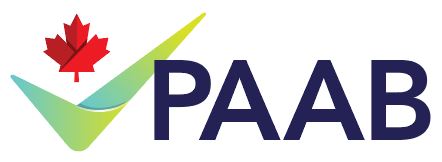721 - Can a patient survey be used to support claims of ease of use? Would it make a difference if the prescription product were administered through a Class-II medical device?
-
A survey can be considered for use to support non-clinical product claims such as taste, smell or attitude regarding easy of administration if it is deemed to be adequately designed, unbiased and statistically validated data. This means that it must be either published and peer-reviewed, or designed, conducted and analyzed by a third party. Although the unpublished survey can be commissioned by the sponsor, the sponsor must have absolutely no influence over it. For example, the sponsor must not have influence over the protocol planning, protocol implementation, data collection, data analysis, or creation of the report. The sponsor must also not have review privileges of the report prior to its finalization. The scope of the PAAB Code currently excludes claims related to Class I, II, III, or IV medical devices as defined in the Medical Device Regulations. However, it is the sponsor’s responsibility to ensure that all device claims are in compliance with all applicable marketing rules and regulations (please see PAAB Q&A #183). Device claims should be separate from drug product claims and should not infer significance to the drug product.
-
A survey can be considered for use to support non-clinical product claims such as taste, smell or attitude regarding easy of administration if it is deemed to be adequately designed, unbiased and statistically validated data. This means that it must be either published and peer-reviewed, or designed, conducted and analyzed by a third party. Although the unpublished survey can be commissioned by the sponsor, the sponsor must have absolutely no influence over it. For example, the sponsor must not have influence over the protocol planning, protocol implementation, data collection, data analysis, or creation of the report. The sponsor must also not have review privileges of the report prior to its finalization. The scope of the PAAB Code currently excludes claims related to Class I, II, III, or IV medical devices as defined in the Medical Device Regulations. However, it is the sponsor’s responsibility to ensure that all device claims are in compliance with all applicable marketing rules and regulations (please see PAAB Q&A #183). Device claims should be separate from drug product claims and should not infer significance to the drug product.
@jennifer-carroll Do these requirements about the sponsor's lack of involvement also apply to non-comparative patient satisfaction claims about Patient Support Programs (as discussed here: https://code.paab.ca/resources/Tips_on_Claims_Relating_to_Patient_Assistance_Programs.pdf)
-
@jennifer-carroll Do these requirements about the sponsor's lack of involvement also apply to non-comparative patient satisfaction claims about Patient Support Programs (as discussed here: https://code.paab.ca/resources/Tips_on_Claims_Relating_to_Patient_Assistance_Programs.pdf)
Hello @dmauri
For a non-comparative claim regarding patient satisfaction of a patient support program (PSP), PAAB could consider data on file from the manufacturer. In other words, the sponsor’s lack of involvement does not apply in this case. The survey methodology, data, and analysis should be submitted for consideration to assess the question which may impact content required in the APS. PAAB can provide an opinion on the questions in advance (in the context of the anticipated claims) to ensure that they are asked in a manner that would be considered acceptable. As an example, it must be clear that the question is about the program and not the product or outcomes/effects of the product. Satisfaction with the program cannot be extrapolated to satisfaction with the product.
